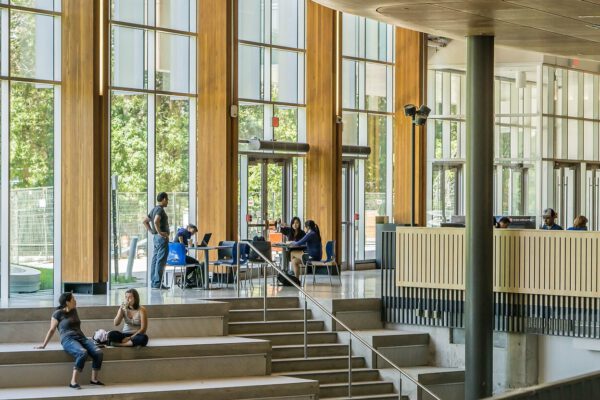ACE2019: Faculty Impact on Career Readiness
Representatives from Strada Education Network, the Career Leadership Collective, and the Association of College and University Educators (ACUE) joined forces to facilitate the session “From Impactful Classes to Rewarding Careers: The Unique Influence of Faculty on Students’ Career Readiness and Satisfaction” to a packed room of highly engaged attendees at ACE2019.
The session focused on how colleges and universities can integrate career guidance and readiness throughout the student experience—including in the classroom and in online courses—and embrace the unique influence that faculty have in students’ success after college. Gallup-Purdue research has found that when recent graduates report having a mentor, 80 percent of the time they say that mentor was a faculty member. Students spend more time with their professors than any other college advisor, counselor, or support professional, which makes faculty best positioned to have the greatest impact.
“We’re moving into a slightly new shift,” said Jeremy Podany, CEO and founder of The Collective. “It used to be that students would say ‘Who’s the expert? Where’s the career expert I can go to?’ And now they say, ‘Who do I trust? Who am I in front of the most? Who have I built a relationship with?’”
As Paul De Giusti, vice president of external and government affairs at Strada, shared, 39 percent of college students say they never visited their school’s career services office. This supports the need to equip faculty to have career conversations with students, extending the efforts of career service professionals, in order to strengthen the pathways from education to employment—Strada’s mission—and weave career education into the fabric of the student life cycle, the focus of The Collective.
ACUE, in collaboration with the Council of Independent Colleges (CIC), Strada, and The Collective, developed an online course in career guidance and readiness to prepare, support, and credential faculty in engaging in career conversations with students and helping students cultivate the soft skills employers are seeking. Over 550 faculty members across 26 CIC member institutions are currently enrolled as part of the CIC Consortium for Instructional Excellence and Career Guidance.
Penny MacCormack, ACUE’s chief academic officer, explained that participating faculty learn the core teaching competencies aligned to ACUE’s Effective Practice Framework, but they also complete dedicated learning modules on career guidance and readiness and receive career-focused facilitation when engaging in the course in cohorts.
“We wanted to make sure that faculty have the level of support they need to learn and put into practice the teaching techniques that are evidence based, that we know increase engagement, motivation, and deep learning,” MacCormack said. “And when I say that our mission is to ensure student success, student success for me and for [ACUE] means students graduate with a meaningful degree prepared for their future.”
MacCormack called upon the audience to consider the three experiences faculty can have with students that positively influence their future engagement in the workplace and general sense of well-being: “One professor excited me about learning, one professor encouraged me about my future goals, and one professor cared about me as a person.”
The result? According to MacCormack, these graduates would be “the happiest people you’ll ever meet.” And to the audience, she said, “We can do that. We can make sure that happens.”

—Julie Candio Sekel
If you have any questions or comments about this blog post, please contact us.


